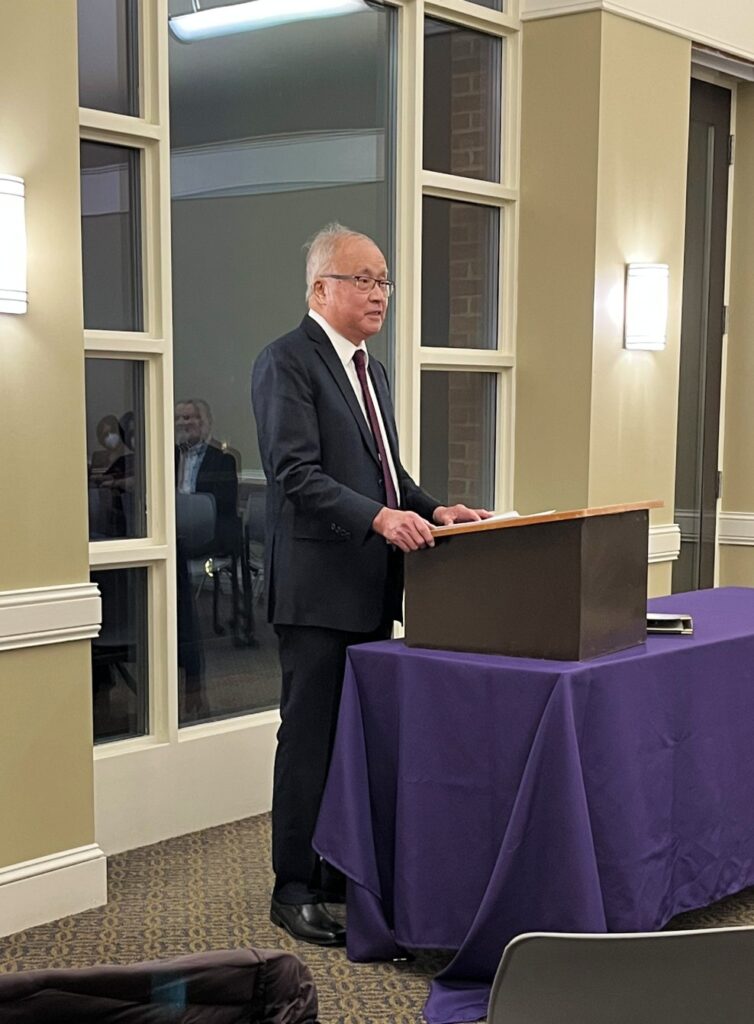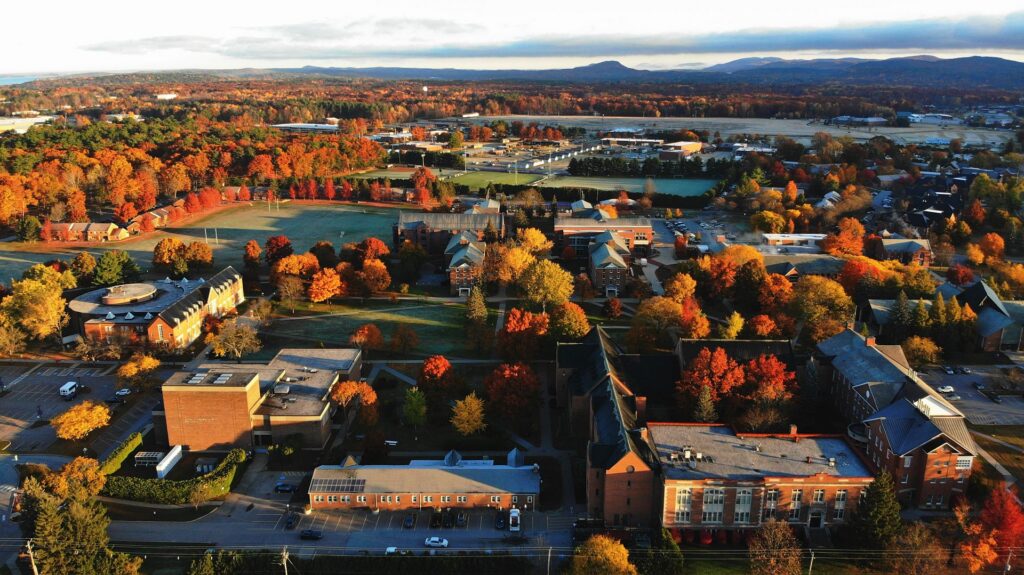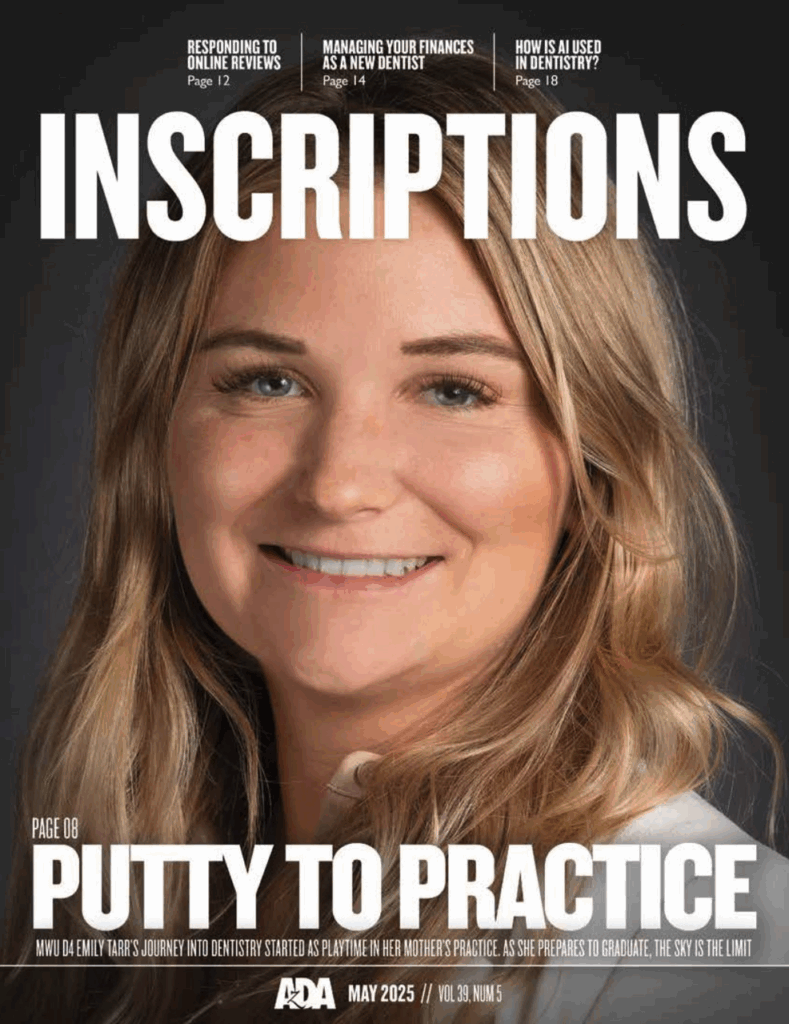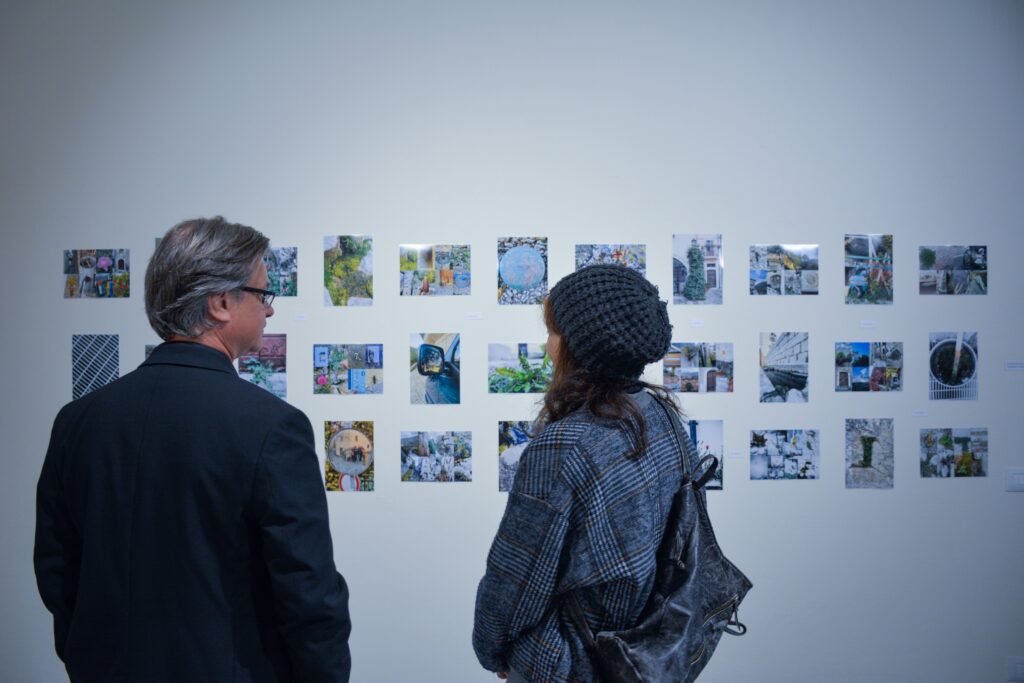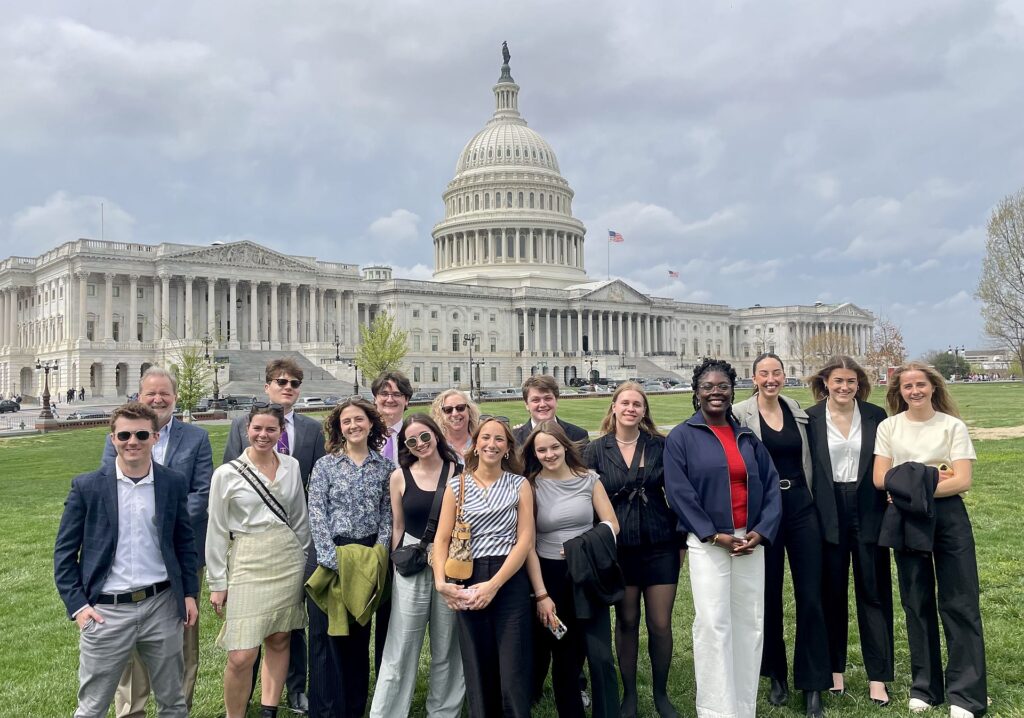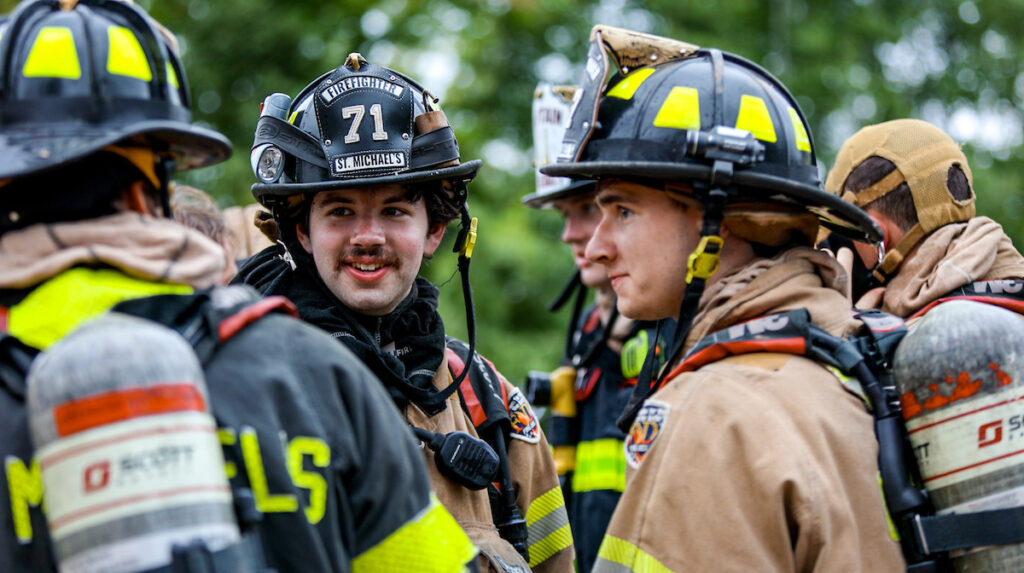After almost four decades of work to promote international education mostly in Vermont, Dr. Juefei Wang, the Project Director at the Freeman Foundation, says mutual cultural understanding is more important now than it ever has been.
Wang made the case for international education at Saint Michael’s College during International Education Week – an annual celebration of “programs that prepare Americans for a global environment and attract future leaders from abroad to study, learn, and exchange experiences,” according to the U.S. State Department. The State Department and U.S. Department of Education helped establish International Education Week, which is recognized by colleges around the country.
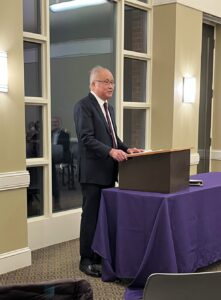
Dr. Juefei Wang, Project Director at the Freeman Foundation, speaks at Saint Michael’s College on Nov. 14, 2023. (Photo by Elizabeth Murray)
Wang’s talk was one in a slate of events hosted by the College’s Institute for Global Engagement during the week of Nov. 13-17. Wang’s organization, the Freeman Foundation, provides grants to 30 colleges across the country – including Saint Michael’s – to send students to countries in East Asia to complete internships. Last summer, 15 students who were awarded these grants completed internships in Ho Chi Minh, Vietnam, and Seoul, South Korea.
Political Science and International Relations Professor Jeffrey Ayres, the Center’s director, called the Freeman Foundation internship program a “flagship program at the College for global engagement.”
Wang, a native of Beijing, China, has spent much of his career promoting and studying the impacts of global education and international exchanges of culture, language and knowledge. During the 1990s, he founded and directed the statewide Program for Asian Studies in Schools in Vermont, a highlight of which was exchange trips for students and educators between Asian countries and Vermont. Overall, he created conditions for more than 1,200 American educators and students to visit China, Japan and Thailand, and for more than 600 Asian educators and students to visit the U.S.
“We believed that to have actual learning take place in students’ minds, we would need to practice physical experience and physical appearance,” Wang said. “By looking around, listening to conversations in the local languages, smiling the smiles … and talking with local people, their understanding of Asian cultures would be deeper and more comprehensive than reading books and watching videos.”
And, for those who could not travel, physical appearances by Asian teachers in Vermont schools became extremely important.
“At the same time, the visiting teachers could improve their English skills and experience American culture,” Wang said.
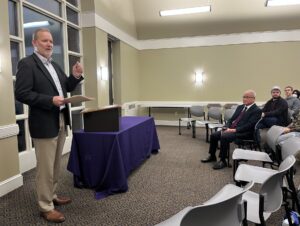
Jeffrey Ayres, the Director of the Institute for Global Engagement and Chair of the Political Science and International Relations Department, introduces Dr. Juefei Wang, Project Director at the Freeman Foundation, during an event on Nov. 14, 2023. (Photo by Elizabeth Murray)
By 2008, more than 60% of Vermont schools offered education on Asia, Wang said. The goal was to make Vermont a model for the rest of the country in international exchange and education. The Freeman Foundation helped support these efforts.
“Friendships were made, understanding was enhanced, and pleasant memories of the bonds with each other would remain fresh for years,” Wang said.
Today, Wang said he is unsure if many of these programs established through this statewide program still exist in Vermont schools since many of the educators involved in the program have since retired and U.S. ties with China have become more tense. But, he said, he believes international education is more important in today’s world than ever.
“Today, while we gather here in this quiet conference room on this beautiful campus, two wars are going on: the war between Russia and Ukraine and the war in the Middle East,” Wang said. He added, “To resolve issues in the world, we need the people of various countries to understand each other. To reach that understanding, we need international education, more so today than ever before.”
As a country often seen as a global leader, the U.S. can lead in this respect too, Wang said.
“Many countries look to the U.S. for solutions to the issues they are facing,” Wang said. “It is crucial that we promote and implement international education on a regular basis … through curriculum and various activities on campuses of schools at all levels.”

For all press inquiries contact Elizabeth Murray, Associate Director of Communications at Saint Michael's College.
